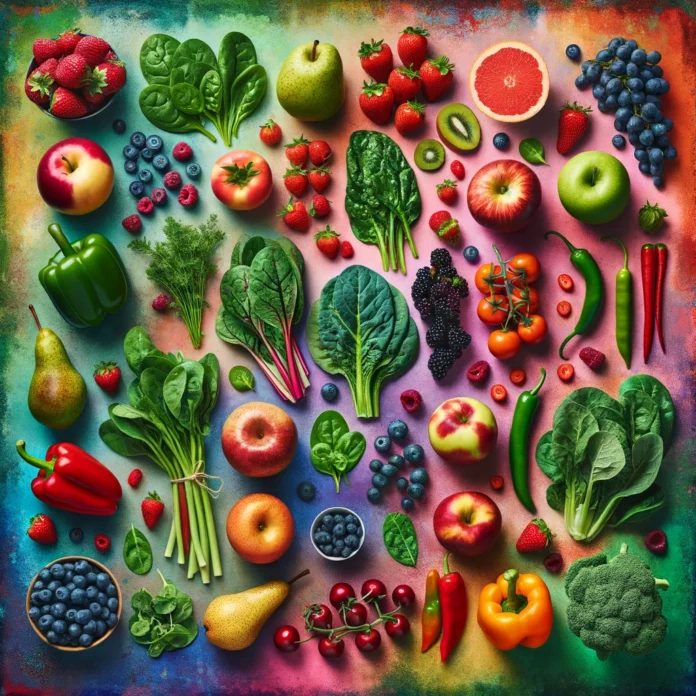As summer approaches, favourite fruits like strawberries, nectarines, grapes, and cherries are eagerly anticipated. However, recent findings from the Pesticide Action Network (PAN) suggest that these seasonal delights may carry hidden dangers in the form of pesticide residues, including persistent ‘forever chemicals.’ This comprehensive guide explores the implications of these chemicals found in our common produce and discusses what they mean for our health and environment.
The Pervasive Problem of Pesticides
Highlighting the “Dirty Dozen”:
Every year, certain fruits and vegetables are identified for their high levels of pesticide residues, commonly referred to as the “dirty dozen”. This year’s list includes strawberries, apples, peaches, nectarines, grapes, cherries, spinach, sprouts, cucumbers, tomatoes, lettuce, and beans. The predominance of these chemicals, including the notorious PFAS (per- and polyfluoroalkyl substances), is alarming due to their ability to linger in the environment and accumulate in human bodies.
The Health Implications:
Pesticides, and particularly PFAS, are linked to a plethora of health issues. Studies have shown associations with reduced immunity, metabolic disruptions, and increased cancer risks. The ubiquitous nature of these chemicals means they are not just a personal health risk but a widespread public health concern.
The Struggle Against Chemical Dependence
Advocacy and Government Role:
Organisations like PAN advocate not for a cessation of fruit and vegetable consumption but for a transition towards reduced chemical reliance in agriculture. They stress the need for governmental support to aid producers in adopting more sustainable practices, moving away from an overdependence on harmful chemicals.
Alternatives and Sustainable Practices:
The future of farming may lie in Integrated Crop Management (ICM) strategies, which focus on reducing chemical use by enhancing natural biodiversity and soil health. Organic farming also plays a crucial role, as it typically involves lower pesticide usage and promotes environmental sustainability.
Practical Advice for Consumers
How to Mitigate Exposure:
To minimise exposure to harmful pesticides, consumers are advised to choose organic produce. Washing fruit and vegetables thoroughly under running water can also help remove residues on the surface, although it does not eliminate systemic pesticides absorbed by the produce.
Understanding Labels and Standards:
Understanding food labels and certifications can greatly aid in making safer food choices. Organic labels, while not a guarantee of zero pesticide use, indicate significantly lower levels of chemical residues and adherence to stricter farming standards.
The prevalence of pesticides in commonly consumed fruits and vegetables is a significant concern, underscored by their potential health risks. Empowering ourselves with knowledge about these chemicals and how to avoid them is crucial. Opting for organic produce, supporting sustainable farming practices, and advocating for stringent regulatory changes are proactive steps towards safeguarding our health and protecting the environment. Embracing organic options is not just a personal choice but a collective step forward towards a healthier, more sustainable future.
Further Reading and Resources:
- Visit Site PAN UK, a comprehensive resource for reports and studies on the use and impact of pesticides in the UK and globally.
- Visit Site NIEHS, explore detailed information and scientific research about the health impacts of PFAS and and other environmental pollutants.
- Food Standards Agency – Pesticides in Food, Visit Site, this is a government page provides guidelines and regulations on pesticide residues in foods sold in the UK, including permissible levels and safety standards.




